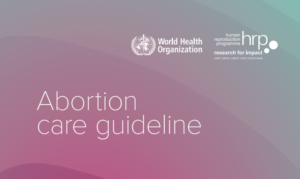Abortions are a medical way to terminating a pregnancy. While abortions may cause some pain or cramping, many Kenyan women can manage the discomfort. This is why we advise most information to be taking as a hyperbole. Every individual has a different pain threshold and a single comment seen on the internet does not resonate to the thousands of abortions carried out by the thousands of women worldwide.
The experience of an abortion varies between every woman. Abortions may cause some pain or cramping, but just like menstrual pain most women can manage this discomfort.
The level of pain and other side effects that a woman may experience largely depend on the type of abortion she has. The three most common types of abortion in Kenya are:
- Medical abortions
- Vacuum aspiration
- Dilation and evacuation
Here we discuss what a woman can expect during each of these procedures below:
Medical abortion in Kenya.
A medical abortion is when a woman takes two prescribed abortion pills to end her pregnancy (mifepristone and misoprostol). According to World Health Organization, a doctor will typically recommend this type of abortion up to a period of 12 weeks after a woman’s last period.
The first pill, mifepristone(mifeprex), stops the pregnancy from developing. The second pill, misoprostol (Cytotec, isovent, miso Clara, misoclear, misokare), causes the uterus to contract and pass out the pregnancy tissue. Some women may experience moderate pain as a result of these uterine contractions.
Every woman who has a medical abortion will respond differently. Some women describe the experience as being similar to having a heavy period and cramps. Others may experience more intense cramping.
When someone has a medical abortion, they usually pass out the pregnancy tissue within 3 to 5 hrs. Individuals may experience some bleeding or spotting for several weeks after taking the pills.

Vacuum aspiration in kenya.
Vacuum aspiration is a type of surgical abortion that involves the use of gentle suction to remove the pregnancy tissue.
In Kenya the doctor will give a woman an injection or medication to numb the cervix before performing the aspiration. Sometimes they prescribe a general anaesthetic, but this is rare.
Because the procedure involves the use of pain relief medications, vacuum aspiration does not usually hurt. However, a woman may experience a dragging or pulling sensation during the process.
Some women may experience moderate cramping for the first day after having vacuum aspiration, while other women may experience bleeding or spotting for up to 2 days afterward.

Dilation and evacuation in Kenya.
Dilation and evacuation is another type of surgical abortion that doctors typically recommend if the woman has been pregnant for more than 12 weeks according to World Health Organization.
Dilation and evacuation involves the use of a general anaesthetic, which puts the woman to sleep. This means she will not be conscious during the procedure and will be unable to feel pain.
The doctor begins by using dilators, which are thin rods, to open the woman’s cervix. Then they use forceps and suction to remove the pregnancy tissue.
After having a dilation and evacuation procedure, we observed that a woman may experience some cramping for 1 or 2 days. She may also have spotting or bleeding for up to 2 weeks.




